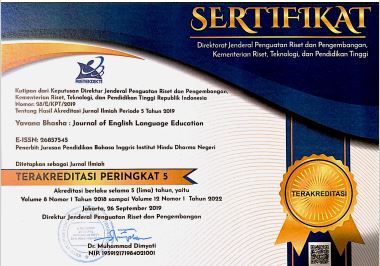GOOGLE CLASSROOM FOR LANGUAGE LEARNING: ITS BENEFITS AND CHALLENGES ACCORDING TO RECENT RESEARCH
DOI:
https://doi.org/10.25078/yb.v8i1.3689Keywords:
benefits, google classroom, language learning, language skills, technologyAbstract
Along with the growing impact of technology in education, Google Classroom emerged as one of the most commonly used online learning platforms. Many studies have argued for the benefits of Google Classroom, including in the context of language learning, although its implementation comes with challenges. Objectives: This study investigated prior studies on Google Classroom to provide a comprehensive summary of the benefits and challenges of Google Classroom for language learning. Methods: This study adapted the library research model from George (2008) into a qualitative design, where the data were taken from experts’ opinions and results of previous studies on the implementation of Google Classroom as published in reputable international journals and national journals accredited by SINTA from 2015 to 2021. Findings: The study revealed that the implementation of Google Classroom was proven to benefit students' four language skills by providing teachers and students with a platform to share learning materials and conduct learning progress synchronically and synchronically. Challenges were also identified during the implementation: low effectiveness, low online learning pedagogical readiness, technological challenges, and lack of students' self-efficacy/self-regulated learning. Conclusion: Google Classroom provides features that may benefit language learning, yet its implementation should be aware of the users’ technological and pedagogical readiness, while stake-holders should provide necessary technical and infrastructure supports for the teachers and the students.








